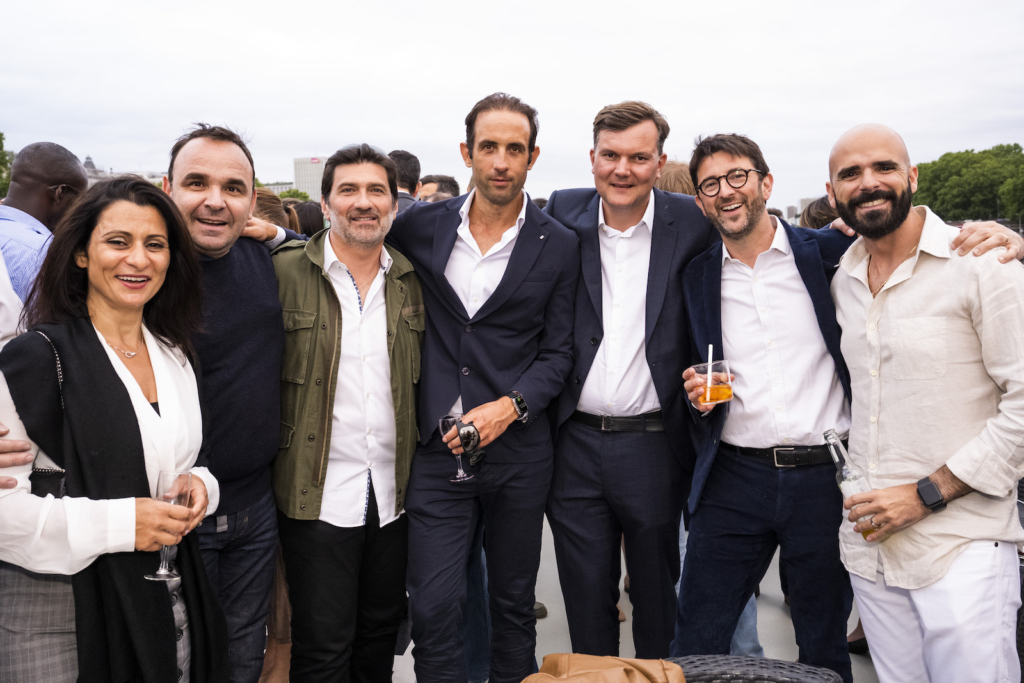In January, HEC Executive MBA alum Arnaud Naudun began his tenure as CEO of BDO France after the firm’s 120 local partners opted for his vision for the company’s future.
The promotion is the latest accolade in a 15-plus-year career in financial services. He cut his teeth with PwC (PricewaterhouseCoopers) as an auditor of large financial institutions in Luxembourg and New York before joining BDO in his native France.
Starting his career key overseas offices for a Big 4 accounting firm was solid indication that he was destined for a consequential future. Getting headhunted by BDO in 2013 as one of their first hires to helm a new financial services department was another. The massive – and literal – vote of confidence from BDO’s partners at the end of last year cemented Arnaud’s position as a true high-flyer. For Arnaud, the decisive factor was one last crucial push in the form of an HEC Executive MBA to get him there.
Aiming Higher
“The HEC EMBA inspired me to run for CEO in the first place,” he says, noting that as a partnership, BDO’s chief executive is determined via a partner-wide vote. “I remember one of our professors, Paul Delahaie, telling us to aim high. He said, ‘don’t settle for the next position up. Use the program to aspire for something even bigger than you’d think possible in the first place.’ That was key in my decision to become CEO.”

Setting one’s mind to purpose is a crucial step in becoming CEO. The next, far more grueling step is action. For Arnaud, that meant leveraging the hard knowledge, soft skills, and key connections from his EMBA, which began, he admits, with a brief spell of turbulence “at the beginning of the program I thought I’d be able to multitask in class, taking care of things for my job, sending emails and not paying full attention, but I quickly saw that wasn’t possible and stopped.” From that early stage, the benefits of the program began to bear fruit.
“I remember one of our professors, Paul Delahaie, telling us to aim high. He said, ‘don’t settle for the next position up. Use the program to aspire for something even bigger than you’d think possible in the first place.’ That was key in my decision to become CEO.”
“I remember the Leadership course as being key,” he says. “Things like applying leadership concepts to business practices and helping us understand different ways to lead people. It was terrific. It’s really what locked me into the remainder of the program.”
Disruptive transformation
An immediate transformative — he calls it “disruptive” — effect had begun, and he wasn’t the only beneficiary.
“Because format of my module was one day a week, I’d be able to go to school, learn new concepts, and immediately go back to work and apply what I’d been learning,” he explains. “Pascal Chaigneau’s Business Environments course was especially great. Before the course, I didn’t think that current events was terribly important to my work. He’s a brilliant guy who truly changed my mind on the importance of geopolitics in determining the environment around me and the impact they have on my day-to-day business.”
The intertwining day-to-day work-EMBA routine made quite the impression on him. So intertwining that to him, it only seemed sensible to base his Capstone project — the final deliverable of the EMBA program — on a 3-year strategic plan for his company. The Capstone, a 30-page report of executive board standard, puts leadership skills to the test, giving participants the opportunity to apply, integrate, and synthesize their knowledge to a potentially fruitful real-world business outcome. Arnaud’s would eventually number among the nearly half of all EMBA Capstone Projects, on average, that are launched and go live to market in some way.
“My Capstone project was the culmination of the holistic HEC experience that helped me secure this role,” he explains. “From the strategic concepts we learned that I integrated into my Capstone and then into the business plan that got me this job, to the soft skills that needed mastering in order to succeed in my new role, to my cohort-mates from whom I learned so much, everything helped convince my partners to accept me as CEO of the firm.”
Looking ahead
He’s taking over as CEO of one of France’s most influential audit and advisory firm in the ever-uncertain business environment of 2021. Part of his mandate, he says, is to ensure growth by keeping in mind what BDO’s purpose really is.
“My election as CEO was my partners showing confidence in my ability to change the way we are run.”
“We are evolving, like everyone, in a very uncertain world. My election as CEO was my partners showing confidence in my ability to change the way we are run. I think it came from my idea to work on a vision for our purpose in society, which is an objective which partially coming from my time at HEC. In class, we would talk about concepts like Shared Values – creating value for us, our shareholders, and society in general — that really helped me sculpt my ideas at the beginning. BDO can genuinely help clients manage their businesses in these very difficult times.”
More CEOs of Fortune Global 500 companies have graduated from HEC Paris than any other university in Europe, and nearly 4,000 graduates are currently CEOs, CFOs, or have founded their own companies. According to the Financial Times, the HEC Paris Executive MBA is ranked #1 in Europe and #3 in the world; click here to learn more. If you’re ready to take the next step in your EMBA journey, introduce yourself here.
Recent Comments